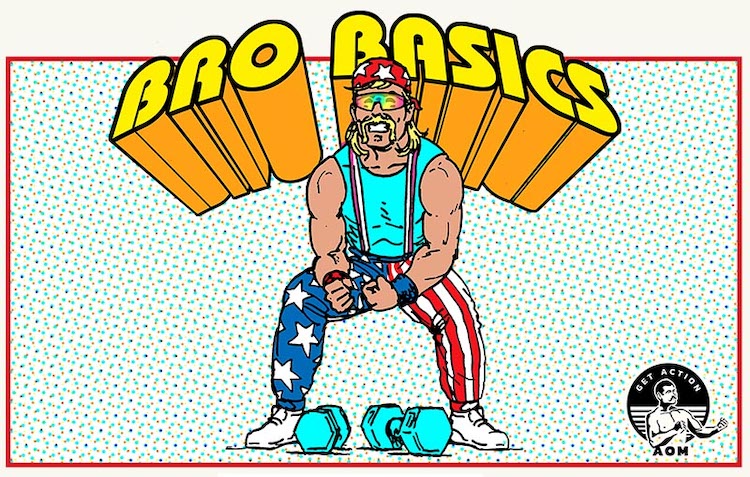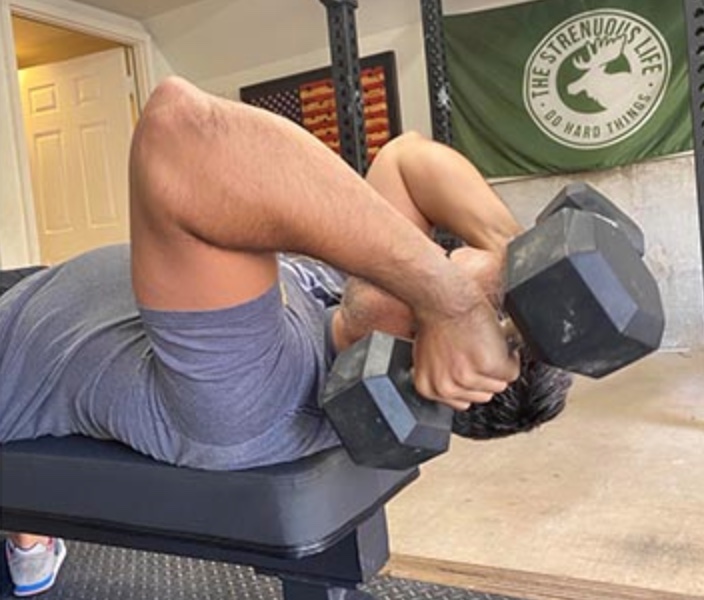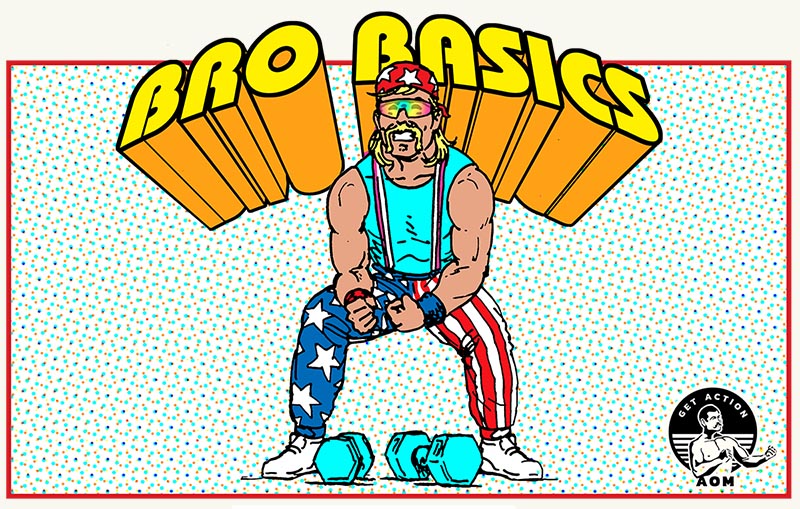
Welcome back to Bro Basics, a series that covers exercises that are popular and can be useful but are often done inadequately and shows the exercises’ broader function and how to perform them correctly.
Are you looking to get a bigger upper body and improve your bench and shoulder press?
Then let me introduce you to a supplemental bodyweight exercise you need to start incorporating into your training: the dip.
What Muscles Do Dips Work?
The dip works several key muscles in your upper body, particularly ones involved in the bench press, making it a tremendous supplemental movement to improve that lift.
The dip primarily works the chest/pecs.
It also hits your triceps, shoulders, and back muscles.
The amount of work a muscle group receives during the dip depends on your body’s position as you perform the movement. If you lean forward more, you’ll hit your pec and shoulder muscles more; if you maintain a more upright position, you’ll work your triceps more.
Why Do Dips?
Dips contribute directly to the main barbell lifts, particularly the bench press. If you want to improve your bench press, the dip can help you with that. As discussed above, the dip primarily works the muscles involved in the bench press: pecs, triceps, and shoulders.
Besides the bench press, dips can also contribute to increased performance on the shoulder press.
Helps build big guns. Many dudes think that if you want big arms, you should spend all your time doing bicep curls. While bicep curls can contribute to arm size, working your triceps actually gives you more bang for your buck, since the triceps make up most of your arms’ girth. The dip is a great movement for beefing up your triceps.
It can be used for conditioning. I typically include dips as part of a conditioning circuit I do after bench pressing. (Don’t neglect your conditioning!) It’s a great way to get both stronger and sweaty.
You can do them outside the gym. Standard dips are performed on a set of parallel bars. But if you don’t have access to those, you can improvise and perform a dip variation on a park bench or chair. This variation is handy to pull out when exercising away from home. Incorporate dips into a circuit along with air squats and push-ups, and you’ve got yourself a quick and effective bodyweight workout.
The Big Downside of Dips
While dips come with many benefits, the exercise does have a downside: if performed improperly, it can tear your rotator cuff.
Back in my twenties, I injured my shoulder doing dips. I went down too deep and too fast during the descent. While I didn’t tear my rotator cuff, I sprained it and had to take it easy for a few weeks while my shoulder healed.
If you have bad shoulders or are older, you should probably skip the dips. My barbell coach, Matt Reynolds, has a simple rule regarding dips: “If you do a dip, and it bothers your shoulders, don’t do dips.”
In place of dips, do another accessory exercise that works the triceps like a tricep rolling extension.
How to Do a Dip
To perform dips, you’ll need two parallel bars.
These parallel bars can come in the form of two dip bars — freestanding, upside-down U-shaped apparatuses that can be moved around.
You can also do dips at a pull-up/dip station. The dip bars at these stations are often angled so that the space between them is narrower toward the bar on which they’re mounted, and wider apart as they move out. This allows the dip station to accommodate different-sized individuals. If you’re smaller, you’ll want to grip the bars closer to the mount; if you’re bigger, you’ll grip the bars closer to their ends.
If you have a home gym, you can buy a dip attachment for your squat rack.
If you’re just starting out, avoid using gymnast rings for your dips. They’re unstable and increase the risk of tearing your rotator cuff while dipping.
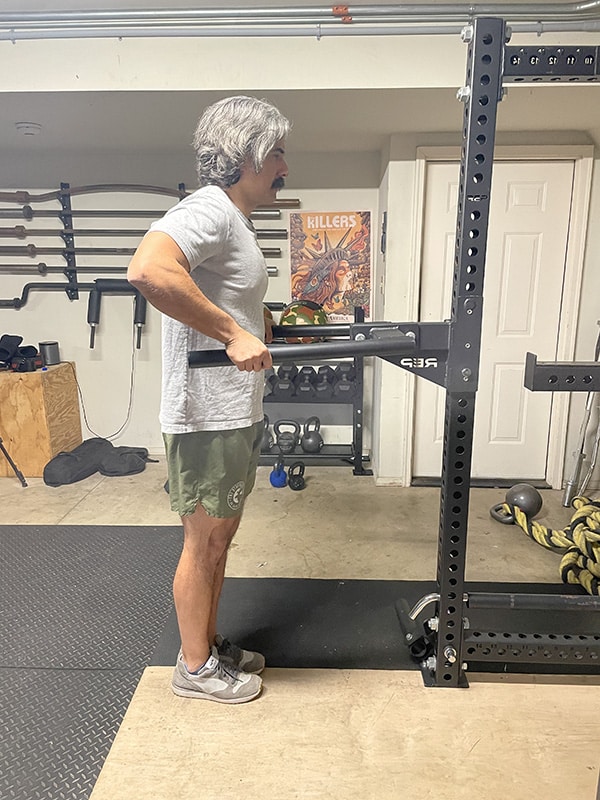
Grab the bars. Your grip should be wide enough that your hands are just outside your shoulders. Going wider than that will increase your risk of injury.
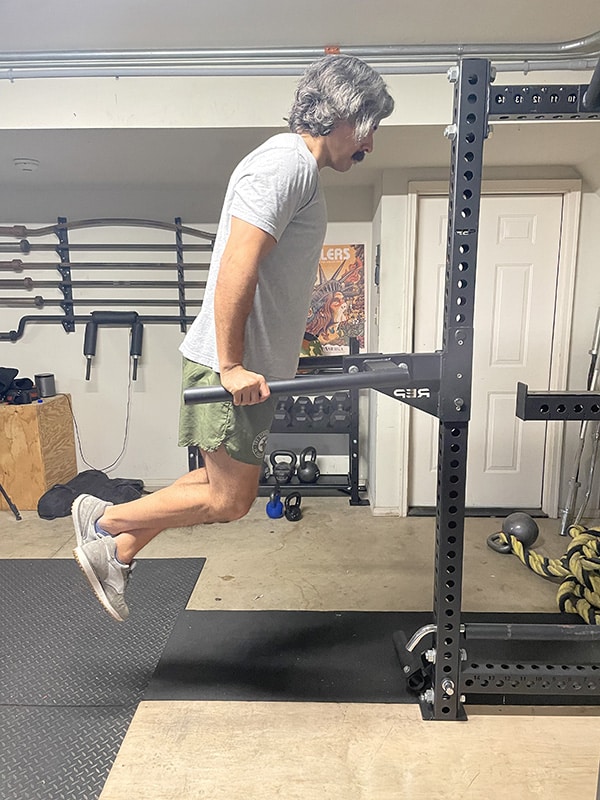
Get in the start position. Jump up until your arms and elbows are fully extended. Bend your knees and lean forward slightly.
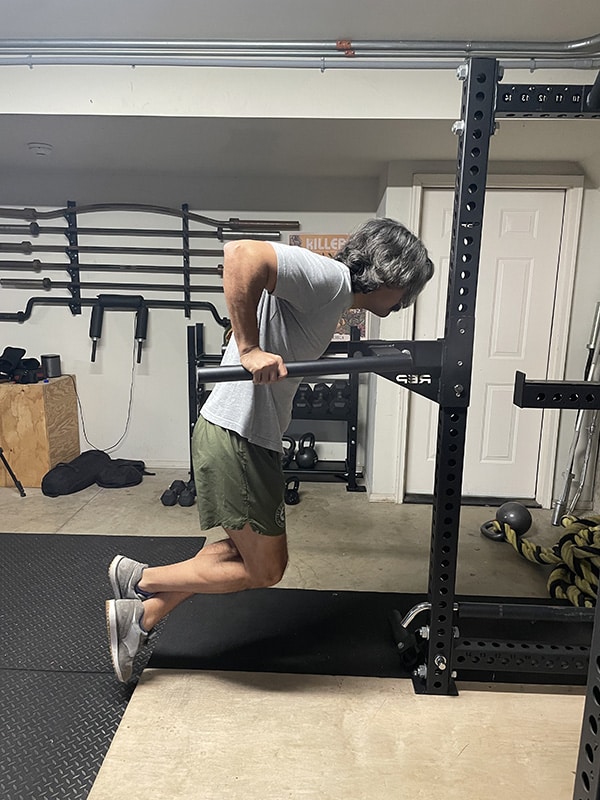
Lower your body. Brace your abs and lower yourself in a controlled manner while keeping your forearms vertical and your body in a slight forward lean. Lower yourself until your shoulder goes just below your elbow. This will give you the most range of motion without going so deep that you injure yourself.
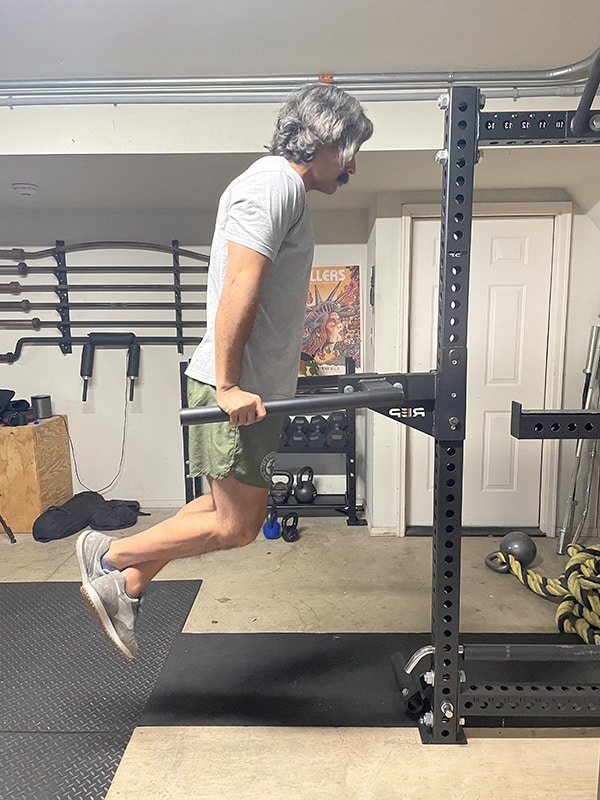
Push yourself back up to the start position. You just did a dip.
What If You Can’t Do a Dip?
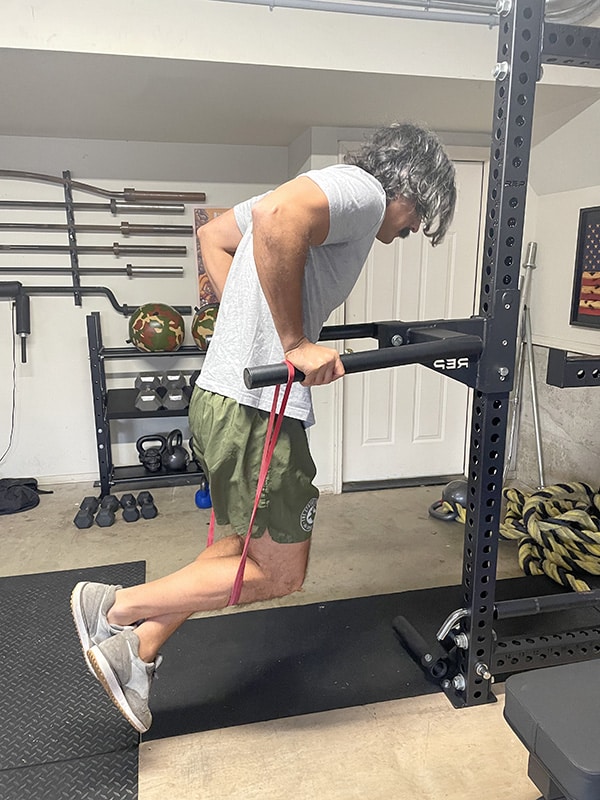
If you can’t do a single bodyweight dip, place a resistance band around the dip bars. Put the weight of your knees on the bands. This will give you some assistance during the movement. As you get stronger, decrease the resistance level of the band until you can do a full, unassisted dip.
Increasing Weight with Dips
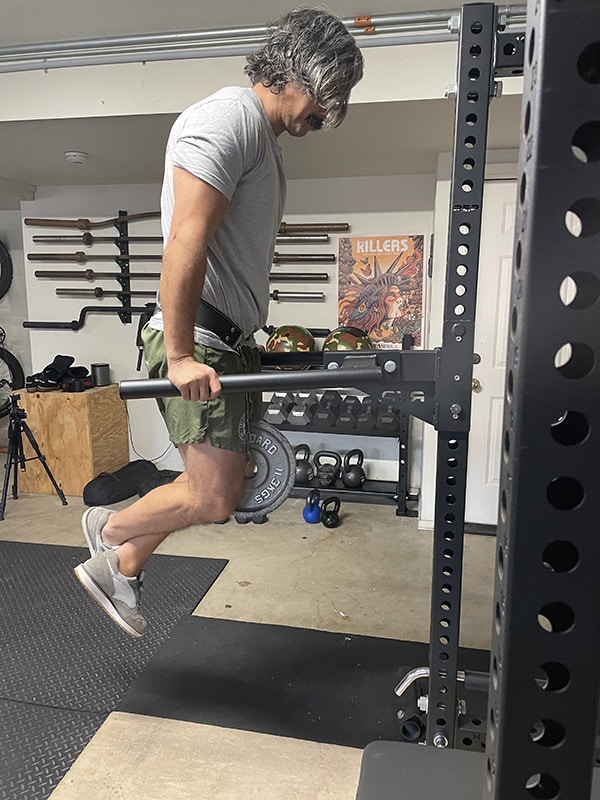
If you can crank out more than ten reps of bodyweight dips with ease, it’s time to add weight.
You can do that with a dip belt. It’s a leather or nylon belt with a chain attached. To add weight to your dips, you thread the chain’s free-hanging end through a barbell plate and hook it to your belt.
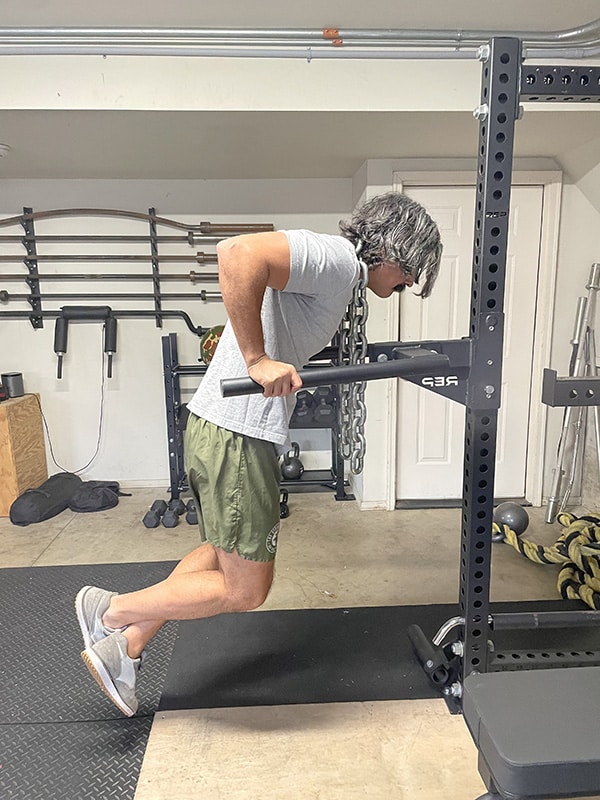
Another way you can add weight to your dips is by putting heavy weightlifting chains around your neck. You definitely feel like a badass adding weight to your dips this way.
Bench Dip Variation
If you don’t have access to parallel bars, you can still work your triceps by doing a modified dip using a weight bench, a park bench, or a chair.
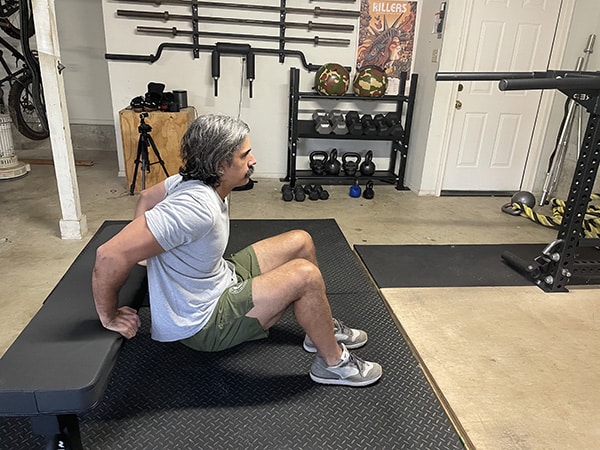
Position yourself as if you’re going to sit down on the bench, but place your butt just off the bench’s edge with hands shoulder-width apart, gripping the edge. Adopt the proper bench dip posture: keep knees at 90 degrees; draw in and brace the abs; lock the shoulder blades back and down.
Slowly lower your body by bending at the elbows and shoulders until your forearms create a 90-degree angle. Maintain good posture throughout.
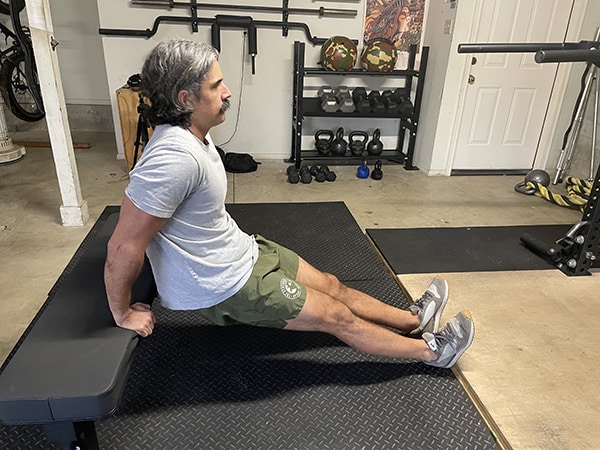
To increase the difficulty of this exercise, extend your legs out straight.
Programming Dips
As mentioned, dips are a great accessory exercise for the bench press and shoulder press. Matt typically programs dips for me on the days I do my upper-body workout. He’ll usually combine them with pull-ups.
So my workout would look something like
- Bench press
- Shoulder press
- Pull-ups
- Dips
If you’re just starting out with dips, you’ll need to slowly work your way up to 4 sets of 10 reps. Start off with 4 sets of as many as you can. This could be just 2 or 3 reps. Each week add a rep. When you can do 4 sets of 10 bodyweight dips, it’s time to add some weight with a dip belt or chains. Look to add 5 to 10 pounds at a time.
Tags: Bro Basics, Exercises

